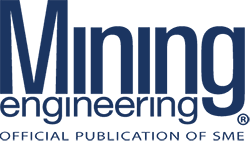
Rio Tinto may soon enter the market of producing minerals that will help fuel the future of transportation by turning to the mine it has been operating for 90 years.
The company will conduct a pilot program on the waste rock at its boron mine in California in attempt to extract lithium, a crucial ingredient in batteries for electric vehicles (EV). The Financial Times reported that the company discovered the potential for lithium while it was searching for gold in the tailings.
The company discovered lithium at a concentration higher than rival U.S. projects under development, although the company declined to give the exact percentage.
“The material being used has already been mined, so this will be a low-energy option for the production of lithium,” Bold Baatar, Rio Tinto’s chief executive of energy and minerals, said in a statement to Reuters.
If successful, Rio Tinto could enter the lithium market that is set to see dramatic growth over the next decade due to the rise of electric vehicles, which are powered by lithium-ion batteries. Lithium is currently produced in South America and Australia and is controlled by five producers, two of whom are Chinese. Trump administration is keen to encourage domestic supply to meet the needs of its carmakers.
The move comes as U.S. politicians and regulators push to expand domestic mining of strategic minerals used to make EV batteries and other high-tech equipment. China is the world’s largest producer and consumer of many of these minerals.
Rio Tinto has produced borates – a group of minerals used to make soaps, cosmetics and other consumer goods – for nearly a century in the Mojave Desert, about 120 miles (195 km) north of Los Angeles.
The company is spending $10 million to build a pilot plant that will extract the white metal using a heat-and-leaching process involving a kiln heated to 1,740°F (949°C).
The pilot plant will only produce about 10 t/a (11 stpy). If that step is successful, Rio said it would consider spending $50 million to build an industrial-scale plant to make 5 kt/a (5,500 st) of lithium annually.
That would be roughly the same production capacity as a lithium brine project in Silver Peak, Nevada, controlled by, Albemarle Corp – the world’s largest lithium producer.
Rio Tinto said its facility could eventually be the largest lithium producer in the United States, though it did not give any long-term output estimates.
Rio also controls Utah’s Kennecott copper mine and a lithium deposit in Serbia that has yet to be developed.
Other companies developing U.S. lithium projects include Lithium Americas Corp., Standard Lithium Ltd., Texas Mineral Resources Corp., Piedmont Lithium Ltd. and Pioneer Ltd., which is developing a Nevada lithium project also containing a large concentration of borates.
Photo: Rio Tinto boron mine in California, credit, Rio Tinto.
Source : me.smenet.org
